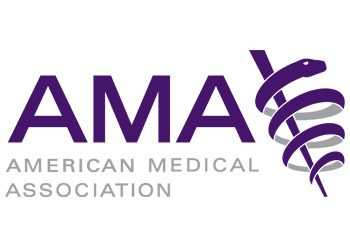In what looks like a change of heart, the American Medical Association (AMA) is starting to like mHealth apps, namely those that “promote safe and effective patient care” and “have the potential to be integrated into everyday practice.” During the recent AMA Interim Meeting, physicians voted to approve a list of principles to guide coverage and payment policies supporting the use of mHealth apps and associated devices.
Said principles — according to AMA Immediate Past President Steven J. Stack, M.D. — aim to “foster the integration of digital health innovations into clinical practice by promoting coverage and payment policies that are contingent upon whether mHealth apps and related devices are evidence-based, validated, interoperable and actionable.”
The list of AMA principles related to mHealth apps and devices is as follows:
- Support the establishment or continuation of a valid patient-physician relationship;
- Have a clinical evidence base to support their use in order to ensure mHealth app safety and effectiveness;
- Follow evidence-based practice guidelines, to the degree they are available, to ensure patient safety, quality of care and positive health outcomes;
- Support care delivery that is patient-centered, promotes care coordination and facilitates team-based communication;
- Support data portability and interoperability in order to promote care coordination through medical home and accountable care models;
- Abide by state licensure laws and state medical practice laws and requirements in the state in which the patient receives services facilitated by the app;
- Require that physicians and other health practitioners delivering services through the app be licensed in the state where the patient receives services, or be providing these services as otherwise authorized by that state’s medical board; and
- Ensure that the delivery of any services via the app be consistent with state scope of practice laws.
Another concern AMA has with mHealth apps and devices is related to patient privacy and data security. In that sense, physicians and mobile solution developers should promote patient awareness of the varying levels data privacy and security afforded by mHealth apps. Moreover, physicians should consult with qualified legal counsel if they are unsure of whether mHealth apps meet standards required by federal or state privacy and security laws.
AMA’s press release ends with the list of its recent digital health partnerships: the organization’s partners include the likes of Health2047; Chicago-based incubator MATTER; IDEA Labs, a student-run biotechnology incubator; SMART project, which was created to ensure EHR systems work better for physicians and patients; Omada Health; and Intermountain Healthcare.


